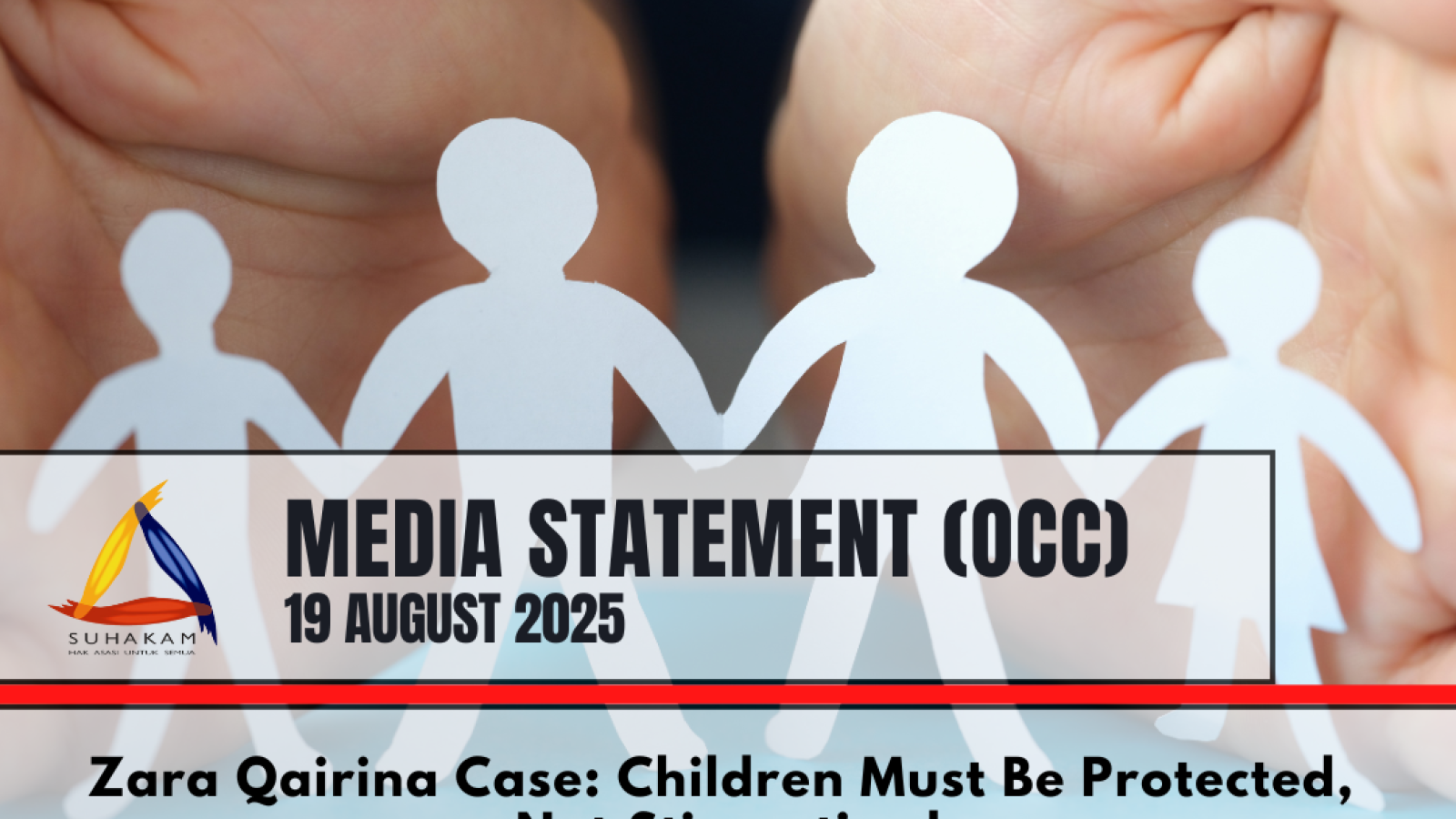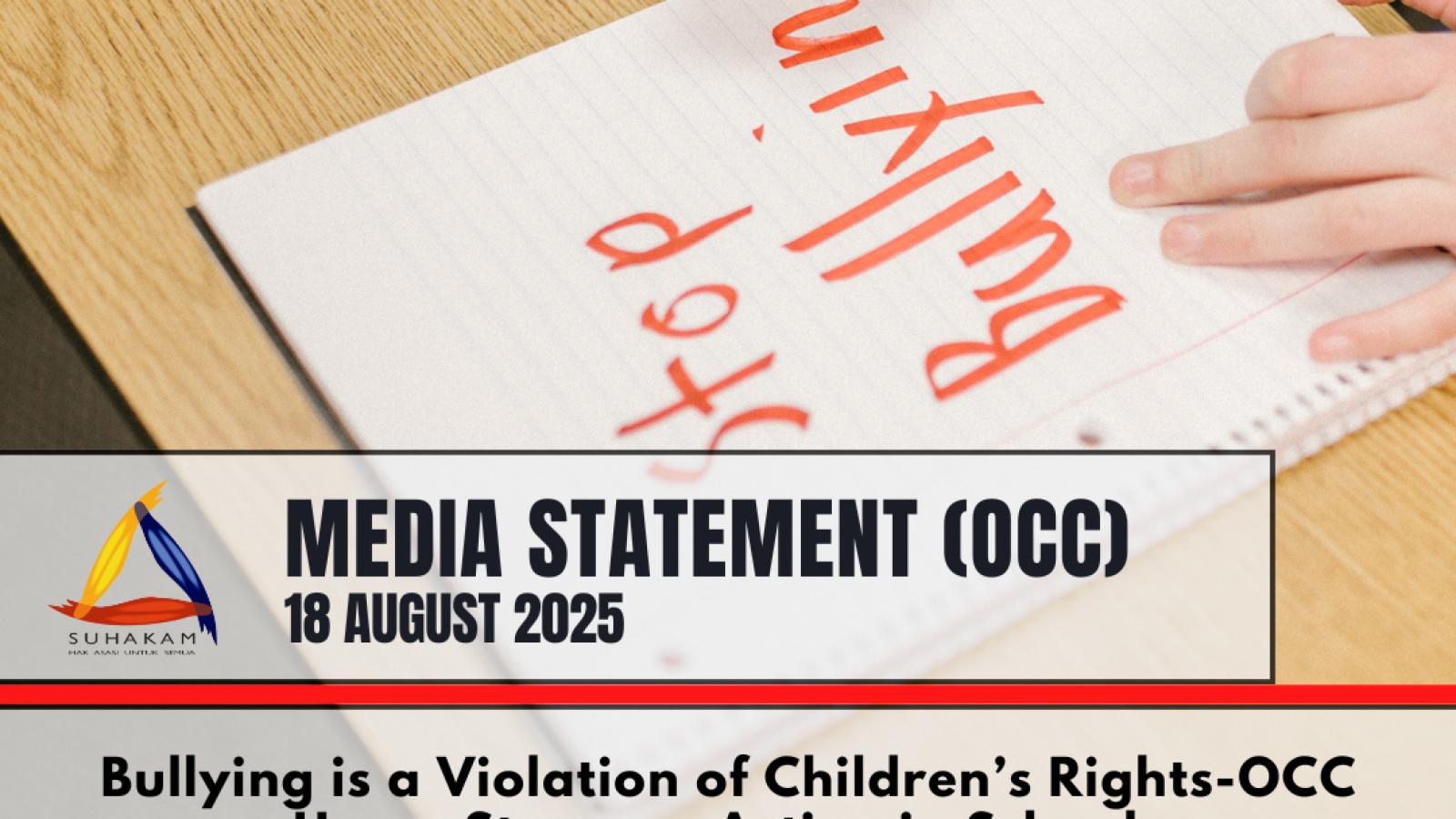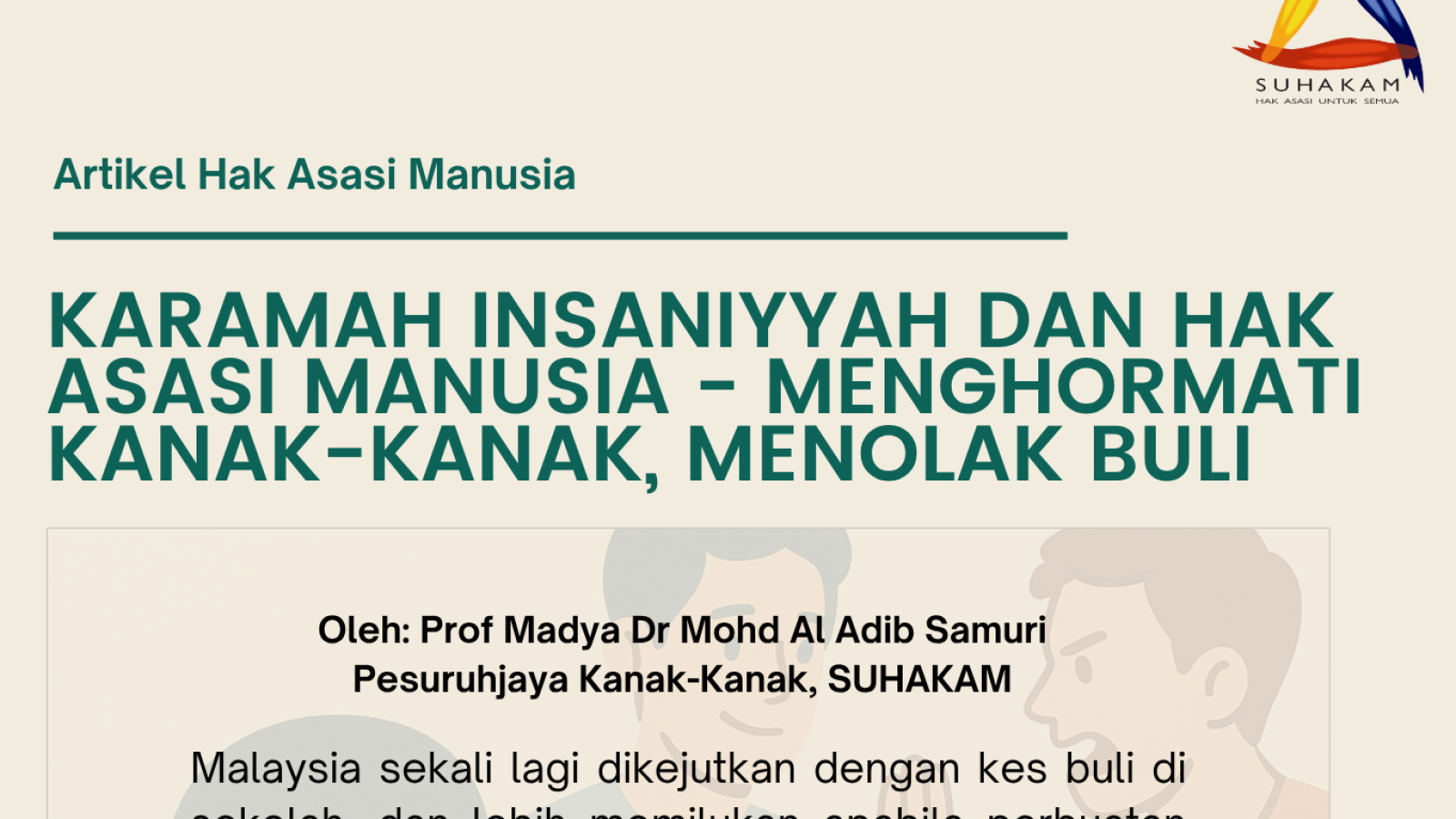KUALA LUMPUR (28 AUGUST 2025) – The Human Rights Commission of Malaysia (SUHAKAM) welcomes the tabling of the Gig Workers Bill 2025 as an important step towards recognising and protecting the rights of gig economy workers in Malaysia. Gig workers, including e-hailing and p-hailing drivers as well as freelancers across various sectors, play a vital role in supporting Malaysia’s economy and providing essential services to the public.
By introducing legal recognition and extending social and workplace protections, the Bill marks a positive move towards addressing long-standing vulnerabilities faced by gig workers. These include gaps in social protection, uncertainty in employment status, lack of dispute resolution mechanisms, and insufficient safeguards for fair remuneration and occupational safety.
At the same time, SUHAKAM believes that further refinements are necessary to ensure that the Bill fully delivers on its promise of dignity and fairness for gig workers while maintaining the genuine flexibility that makes the gig economy attractive to many and an important engine of economic growth.
Therefore, SUHAKAM wishes to recommend the following:
i. A clear framework to ensure guaranteed minimum payment rates, either by hours worked or tasks completed, including clarity on deductions for contributions and the timeline for wage payments by service providers.
ii. Mandatory contributions by service providers to PERKESO/EPF must be enforced, with legal action taken against non-compliant companies.
iii. Right to privacy must be respected and workers’ personal data should not be misused for rating or scoring systems, consistent with Article 12 of the Universal Declaration of Human Rights (UDHR).
iv. Access to legal aid should be extended to gig workers, covering legal advice and representation at tribunals. The National Legal Aid Foundation’s (YBGK’s) resources should be strengthened to enable support for gig workers.
v. Gig workers must be explicitly permitted to unionise under the Industrial Relations Act 1967 (Revised 1976) (Act 177) (IRA) and engage in collective bargaining to ensure their voices are heard in shaping fairer working conditions.
SUHAKAM further emphasises that the establishment of the Special Gig Economy Workers Commission (SEGIM) must consider that gig workers’ issues are cross-cutting in nature, involving multiple ministries. Effective coordination is therefore essential to ensure comprehensive protection and coherent policy responses.
In line with its statutory mandate to advise and assist the Government on matters relating to human rights, SUHAKAM regrets that it was not consulted in the drafting of the Bill, despite the recent amendment of the SUHAKAM Act which further strengthens its advisory role. SUHAKAM also expresses concern that the Government only made the Bill public at a very last stage in the legislative process. SUHAKAM should have been formally included in the consultation process. Therefore, SUHAKAM urges the Ministry concerned that at the Second Reading stage of the Bill in Parliament the Bill is not passed as yet. Instead the Bill ought to be submitted to the appropriate Parliamentary Select Committee for detail scrutiny by the PSC of the provisions of the Bill.
SUHAKAM stands ready to work with the Government and relevant stakeholders to ensure that the legislation is consistent with human rights principles and contributes to the goal of decent work for all.
-TAMAT-
Suruhanjaya Hak Asasi Manusia Malaysia (SUHAKAM)
Date: 28 August 2025










